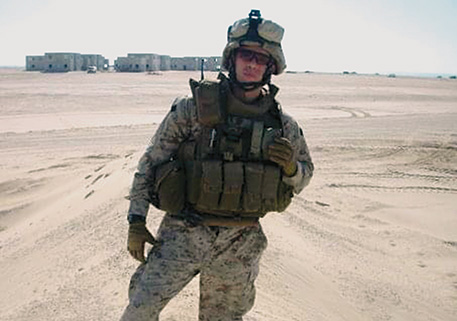The Caring for Survivors Act of 2021 would improve compensation and expand eligibility for survivors of disabled veterans
Survivor benefits for families of disabled veterans who died due to their military service would receive long-overdue updates and expansion if DAV-backed bipartisan legislation is signed into law.
H.R. 3402/S. 976, The Caring for Survivors Act of 2021, would increase Dependency and Indemnity Compensation (DIC)—a tax-free benefit paid to eligible survivors of veterans—by $300 per recipient. The bill would also expand eligibility to more survivors by reducing the period a veteran must be totally disabled to qualify for the benefit.
“When a service-disabled veteran passes away, not only does the surviving spouse have to deal with the heartache of losing their loved one, but they also have to contend with the loss of their veteran’s compensation,” DAV Assistant National Legislative Director Jeremy Villanueva told a Congressional panel considering the legislation in October.
The proposed bill, introduced in the House of Representatives and Senate, would make necessary updates to properly ensure families of disabled veterans are cared for long after their loved one dies.
Sen. Jon Tester of Montana, chairman of the Senate Veterans Affairs Committee, introduced companion legislation in the Senate earlier this year, highlighting the financial security families of disabled veterans would see.
“Families who lost their loved ones in the line of duty or from a service-related injury shouldn’t have to worry about their economic security,” said Chairman Tester. “Our bipartisan bill will fix outdated policies, bringing surviving spouses and family members’ earned benefits in line with other federal programs. And it’ll reduce bureaucratic red tape to ensure no survivor is unfairly kept from the benefits they need in the future.”
The proposed increase in compensation would amount to 55% of what a totally disabled veteran receives each month, which would be the largest increase since DIC was created in 1993, almost 30 years ago.
“That means for more than two decades, as the cost of living has steadily increased, these survivors have been forced to make tough decisions on where they can live, medications they can afford, what groceries they can buy,” said Rep. Jahanna Hayes of Connecticut sponsor of H.R. 3402.
Additionally, families of veterans who are rated at 100% disabled for less than 10 consecutive years and die from a non-service-connected condition are not eligible for DIC. The Caring for Survivors Act would address this by offering a partial DIC benefit beginning at the five-year mark.
“In essence, this would provide some financial stability to families of totally disabled veterans who unfortunately die before reaching the current 10-year requirement,” added Villanueva. “It doesn’t leave them out to dry.”
Strengthening and enhancing benefits for survivors is part of DAV’s critical policy goals for the current Congress.
“It is past time for a much-needed update to DIC benefits,” said DAV National Legislative Director Joy Ilem. “Caring for the families of seriously disabled veterans should not stop when the veteran dies, which is why DAV will continue to advocate for improved benefits on their behalf.”
“To honor these veterans, we should ensure that, to the best extent possible, their families are taken care of by the nation that they have served and those who have laid so costly a sacrifice on the altar of freedom are honored for their sacrifice,” Villanueva told lawmakers at the hearing in October.
You can track updates to this and other legislation affecting veterans and their families by joining DAV CAN (Commander’s Action Network) at davcan.org.






